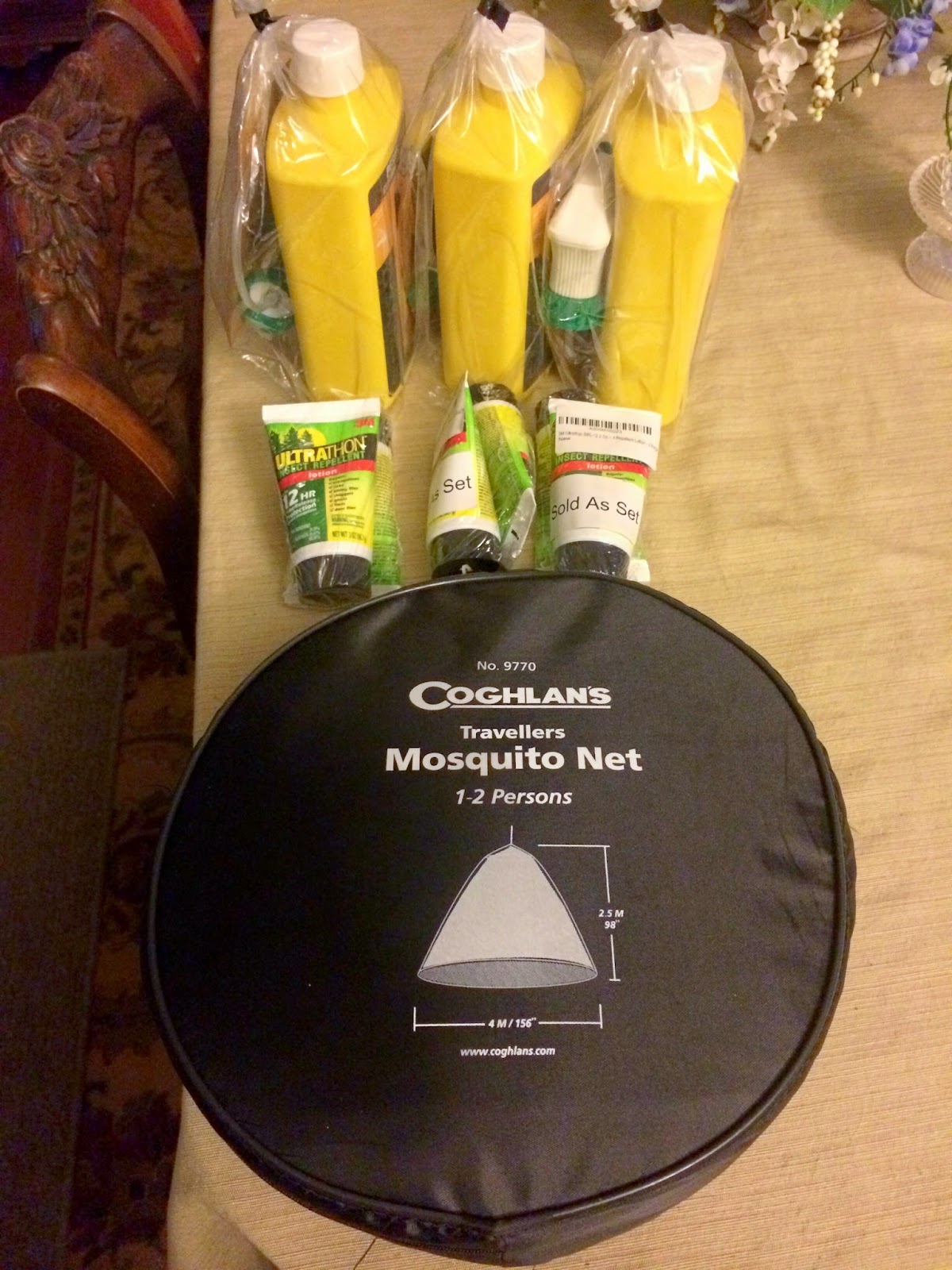Part of preparing for our trip to India is making ourselves aware of the all of the health risks of traveling in India.
We made sure that we are up-to-date on our routine vaccinations such as measles-mumps-rubella (MMR) vaccine, diphtheria-tetanus-pertussis vaccine, varicella (chickenpox) vaccine, polio vaccine, and our yearly flu shots. That is part of the battle.
We then made sure to get vaccinated for Typhoid, Hepatitis A and Hepatitis B. We also got medication for Malaria.
We know not to drink anything except sealed bottled water, not to even rinse our toothbrush in tap water, not to swim in any body of water that is not a chlorinated swimming pool, not to eat anything that is not steaming hot and definitely not from any street vendors (nothing that has been washed in water and not cooked), and to stay away from mammals - especially Monkeys.
Unfortunately all of these precautions will not keep us safe from all of the other vectorborne diseases found in India (acquired through the bite of an infected arthropod) except Malaria:
Dengue fever - mosquito-borne (Aedes aegypti) viral disease associated with urban environments; manifests as sudden onset of fever and severe headache; occasionally produces shock and hemorrhage leading to death in 5% of cases.
Japanese Encephalitis - mosquito-borne (Culex tritaeniorhynchus) viral disease associated with rural areas in Asia; acute encephalitis can progress to paralysis, coma, and death; fatality rates 30%.
Cutaneous Leishmaniasis - caused by the parasitic protozoa leishmania; transmitted to humans via the bite of sandflies; results in skin lesions that may become chronic.
The only thing that we can do for these diseases it try very hard to avoid getting bit by anthropods - in particular mosquitos - is to try not to get bit:
- Cover exposed skin by wearing long-sleeved shirts, long pants, and hats.
- Use an appropriate insect repellent (one that contains 20% or more DEET for protection that lasts up to several hours).
- Use permethrin-treated clothing and gear.
- Stay and sleep in air-conditioned or screened rooms.
- Use a bed net if the area where you are sleeping is exposed to the outdoors.

No comments:
Post a Comment